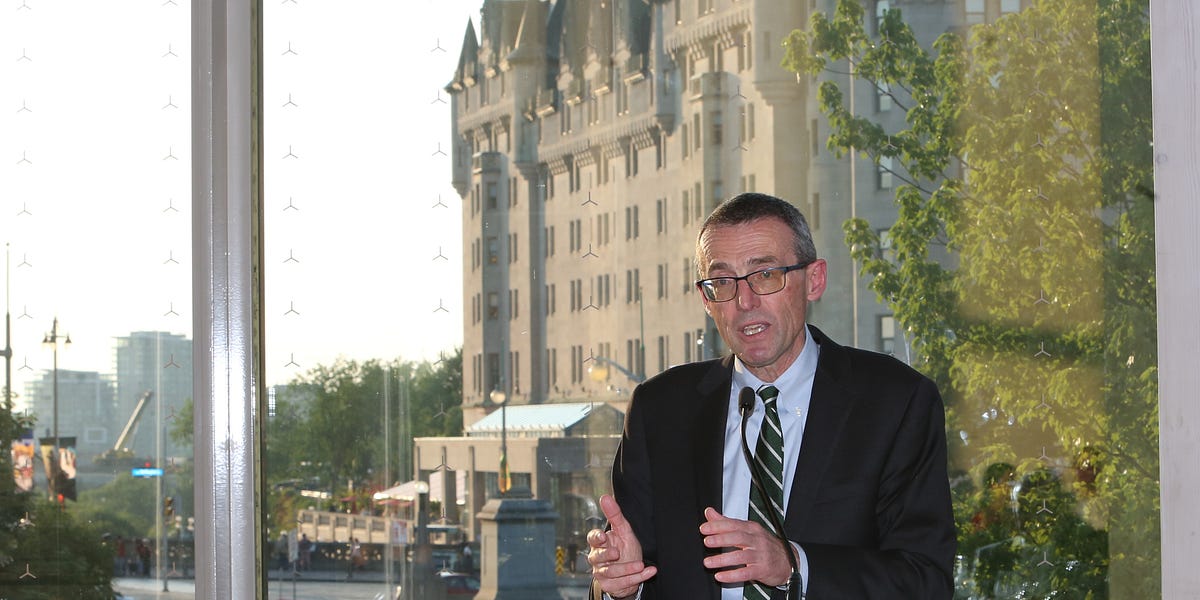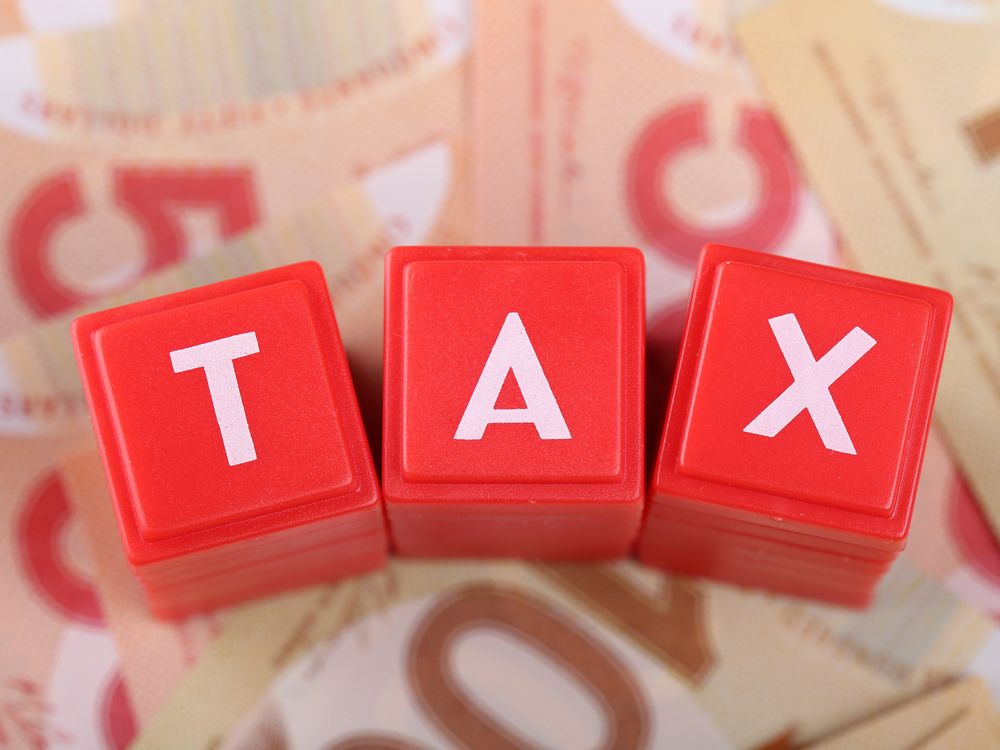ArmyRick
Army.ca Veteran
- Reaction score
- 3,714
- Points
- 1,040
I don't have enough direct information or experience to speak on what you spoke of, you mentioned supply chain, I spoke of what I knew about.Why not talk about what I posted?

I don't have enough direct information or experience to speak on what you spoke of, you mentioned supply chain, I spoke of what I knew about.Why not talk about what I posted?
Funny you mention this. Paul Wells published this today.Wrt the public service, I don't think cutting the actual number of people will do anything, if we leave existing processes in place.
There is a huge amount of triple accounting, multiple layers of overlapping oversight etc which is massively inefficient, but also required by various legislations, policies etc. Going through a lot of that and being ruthless is cutting it would free up a lot of people's time to focus on what work is needed, and also make some people/sections/departments largely redundant, or do things like grab a bunch of folks in DND, PSPC and ISED and jam them into a single department reporting to a single person responsible to the MND for military procurement. You could largely eliminate DPS, and then would solve a lot of arguements in the IPT structure where there are 3 or 4 different decision makers. And other simple things like increasing spending authority delegations at the lower levels to match inflation would be great, as $25k doesn't buy as much as it did in the 80s.
Dropping down the number of people doesn't really do anything to make government 'better', just means things take longer because you have less people cranking the sausage maker so takes longer (which costs real money). And it's not like the policy layers are just from the current LPC government; they've been building for 170ish years.
I hate working within the government most days, but the reality is, as long as there are 14 decision points to get a project approved, someone has to jump through them all. We waste a mind boggling of taxpayer money to ensure we spend it at 'best value' but probably sspend more in real terms on the process then if we just let a lot of the checks and balances drop, but then actually enforced real consequences when people abuse spending authority.

How is it arbitrary? As far as I've seen, every tax increase has had a stated reason based on a some need.
I don't. That's what we have a bureaucracy for. There are many thing that people need that individuals simply cannot afford or produce on their own. We pay taxes to pool our money so that I can get day care (which I can't afford on my own, but do need), while someone else gets a credit toward training a new skill (which I don't need, but can help support).

And while I stand by my statement that most people are stupid with money and wouldn't do what's needed if they had "more of their own money in their pockets", I also think there are many cases where people are in a rough spot through no fault of their own, or at least due to a series of unfortunate circumstances that they could have navigated better.
I personally may be in a situation where I have everything I need, I don't need any assistance to pay for the things I need, and even have extra on the side. Conversely, someone else could be in a situation where they need more support than they can currently afford. That person may be able to stay afloat and get back on their feet thanks to numerous government programs, paid for by my tax dollars, and I'm happy to live in a society where I can indirectly help my fellow Canadians to thrive.
I don't want to live in a libertarian society where taxes are next to zero, there are no social services, and I drive around all happy and fat while my fellow Canadians (some through their own actions, some not) live destitute.
PP does that for himself without being in power. For each cogent statement he makes on affordability issues, he makes a hyperbolic statement laced with half truths that makes undecided voters question his competence.
Case in point: yesterday’s by-elections. Bearing in mind by-elections usually have low turnout, they are also usually a boon to opposition parties because voters tired of governing parties can safely register their displeasure by voting for the opposition without overturning the government. Instead, what we saw was the Liberals INCREASED their vote share in a safe Liberal but winnable seat for the CPC in Winnipeg and a safe CPC seat in Ontario (not as bad as the poll, but still not good). With a Liberal government mired in scandal and incompetence, voters in these ridings thought PP was not worth their vote.
Back in the Chrétien days, I wondered why with all the terrible stuff that government was doing, why weren’t voters giving Preston Manning or Stockwell Day a chance? The answer was because as terrible the Chrétien government was, gettable voters weren’t convinced they were any better because of bozo eruptions by themselves or party members.
@Halifax Tar
Sales Tax- 6.8% of 140,106 = 9,527.21
9,527.21 /.13 HST = $73,286.23 in taxable purchases, or 52% of cash income, 96% of non-tax money. Doesn't leave much for the average family to spend on non-taxed trivialities like mortgage/rent and groceries.
And getting a payroll tax rate that high would take some.. contentious assumptions about the nature of pension contributions and ei premiums, as well as how to attribute employer portions.
Take that chart with a huge grain of salt, there's a reason the methodology section consists of a bunch of vague paragraphs rather than input calculations.

You're using an article about a report to support the veracity of said reports findings. A little circular no?Sure.
I know I get paid 8500 a month. My take home isn't anywhere close to that. Its probably around 55% of that number.
Seems to jive pretty closely with this:

Posthaste: Canadians say they're getting overtaxed as total bill eats up 45% of income
Canadians are paying more in taxes, leading many to say they're forking out too much for what they get, new research suggests. Find out morefinancialpost.com
Again, backed up by the Fraser Institute.
You're using an article about a report to support the veracity of said reports findings. A little circular no?
The math doesn't lie. That sales tax number requires a spending amount that is unsupportable by that income.
Assuming Nova Scotia, baseline take home after Federal and Provincial Income Tax, CPP and EI would be ~66k or 65%, not accounting for the specifics a persons situation -union dues, pension contributions, RRSP deductions, CCB benefits etc.
I read it. Hence already knowing that how woefully inadequate their methodology section is. There's a reason they don't submit these things for peer review or external publicationHeres the full PDF for you to enjoy
You can dispute their numbers with them. But from my seat it looks pretty well on the mark.
Harper tried that with "Work Force Adjustment" using "Tiger teams" to cut staff, regulations and work. The proposed savings they envisioned did not happen and eventually most of the positions cut were refilled. But a lot of turmoil and corporate knowledge was lost. As I said before, the people you want to cut are really good at avoiding the axe. The end result is that you cut people who are to busy working to see and avoid the axe.Wrt the public service, I don't think cutting the actual number of people will do anything, if we leave existing processes in place.
There is a huge amount of triple accounting, multiple layers of overlapping oversight etc which is massively inefficient, but also required by various legislations, policies etc. Going through a lot of that and being ruthless is cutting it would free up a lot of people's time to focus on what work is needed, and also make some people/sections/departments largely redundant, or do things like grab a bunch of folks in DND, PSPC and ISED and jam them into a single department reporting to a single person responsible to the MND for military procurement. You could largely eliminate DPS, and then would solve a lot of arguements in the IPT structure where there are 3 or 4 different decision makers. And other simple things like increasing spending authority delegations at the lower levels to match inflation would be great, as $25k doesn't buy as much as it did in the 80s.
Dropping down the number of people doesn't really do anything to make government 'better', just means things take longer because you have less people cranking the sausage maker so takes longer (which costs real money). And it's not like the policy layers are just from the current LPC government; they've been building for 170ish years.
I hate working within the government most days, but the reality is, as long as there are 14 decision points to get a project approved, someone has to jump through them all. We waste a mind boggling of taxpayer money to ensure we spend it at 'best value' but probably sspend more in real terms on the process then if we just let a lot of the checks and balances drop, but then actually enforced real consequences when people abuse spending authority.
And most importantly is getting external people unaffected by the changes to make the recommendations. When it is done internally most people find a way to make themselves look critical.Harper tried that with "Work Force Adjustment" using "Tiger teams" to cut staff, regulations and work. The proposed savings they envisioned did not happen and eventually most of the positions cut were refilled. But a lot of turmoil and corporate knowledge was lost. As I said before, the people you want to cut are really good at avoiding the axe. The end result is that you cut people who are to busy working to see and avoid the axe.
The best way is a slow ans deliberate review of staffing and regulations and processes. But that is not sexy and quick.
They tried that, it does not work that well either, because everyone in Ottawa is connected or they don't understand the current laws or even the intent and end up tip toing around sacred cows.And most importantly is getting external people unaffected by the changes to make the recommendations. When it is done internally most people find a way to make themselves look critical.

. . . They should be encouraged to serve in a place they didn’t grow up in and meet people different from themselves. It could bolster our ailing military, inject long-term care homes and childcare centres with the labour they desperately need, increase birth rates, and cure loneliness. And it would give us something meaningful to celebrate on Canada Day: a shared national identity. . . .
Nearly 10million Canadians don't make enough to pay income taxes, but enjoy the same services are those that bust their ass everyday to keep the social system going. What a joke. No wonder there is still so much support for this government, too many Canadians live off the government and its handouts.
The sooner the better.So are you suggesting that people need to make X to get healthcare? Emergency services? Police?
That's not "government", that's privatization.
It's times like this I miss the vomit emoji.The sooner the better.

